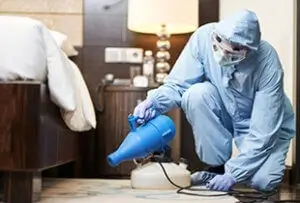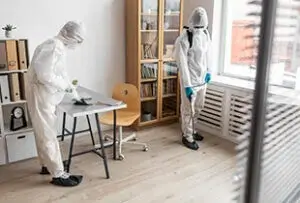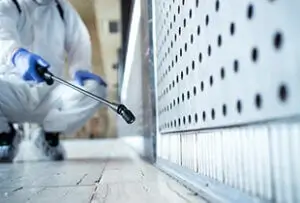
Termite Pest Control in Melbourne, VIC
365 Pest Control provides professional termite & pest control in Melbourne. Our team can handle any termite infestation or pest control problem. A warm, humid climate and leafy surroundings make Melbourne an ideal breeding ground for termites and other pests. Our professional termite and pest technicians target your property’s most vulnerable areas safely and effectively.
In addition to protecting your home or business against termites, we provide preventative termite inspections and warranty inspections. For more information, call (04)33949536 immediately if you find termites.
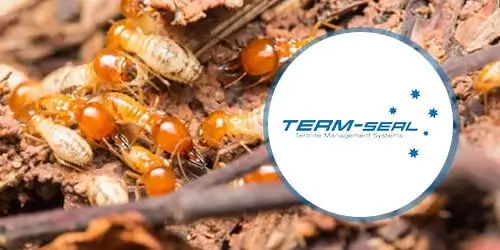
365’s Termite Treatment Melbourne
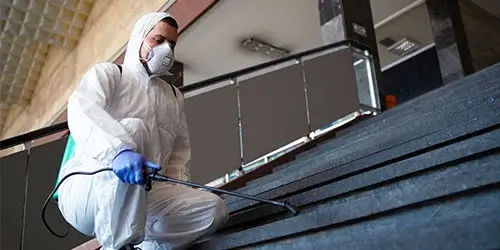
Residential Termite Treatments
Residential termite treatments are the methods and procedures used to control and eliminate termite infestations in homes and other residential properties. 365 Pest Control provides the most effective pest control services to rid your home of pesky pests.
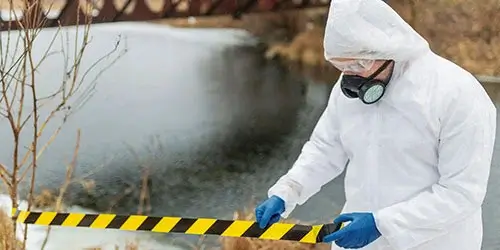
Commercial Termite Treatment
Commercial termite treatment refers to the process of controlling and eliminating termite infestations in commercial properties, including offices, retail spaces, warehouses, and industrial facilities. Our 20+ years of experience will identify any signs of termite activity on your commercial property.
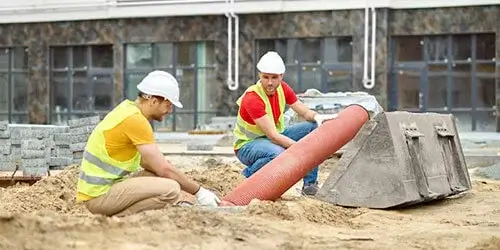
Pre-construction Termite Treatment
Pre-construction termite treatment, also known as pre-treatment, refers to the application of termite control measures during the construction phase of a commercial & residential property. The proactive approach prevents termite infestations by treating the soil or creating a barrier before the building completed.
Process of Our
Termite Pest Control Treatment Plan

Inspection
Inspection

Baiting Systems
Baiting Systems

Identification
Identification

Wood Treatments
Wood Treatments

Treatment Plan
Treatment Plan

Preventive Measures
Preventive Measures

Chemical Treatments
Chemical Treatments

Monitoring and Follow-up
Monitoring and Follow-up
Reason to Choosing 365 for Termites Pest Control in Melbourne, VIC
- Qualified & well exp. Technicians
- Environmental friendly products
- Police check employees
- Always arrive on time
- Clean & calibrated equipment
- Quick response
- No smelly odours
- Guaranteed results
- Comprehensive support
- Focus on pest prevention
Request a Callback
FAQ on Termites Pest Solution
Ans. The best way to eliminate termites from your home permanently is to hire an experienced pest control company. 365 Pest Control Melbourne has years of experience in dealing with termite issues in a wide range of properties. Our team utilizes the proper methods and equipment to remove termites effectively from your home. We also make plans to prevent them from coming back in the future. Termites can only be permanently removed from your home or office by hiring a professional pest control company.
Ans. The presence of small holes in your furniture may indicate a termite infestation. Termites can be stopped from multiplying and damaging your furniture further if they are treated early. Covering small holes in your furniture with a wood hardener is recommended. However, if termites have been damaging your furniture for a long time, the chances of the holes being too large to cover with wood hardener are high. If this is the case, the furniture should be repaired or replaced with new wood. A professional can cover the holes in the furniture for you or you can do it yourself.
Ans. Termites are the most common pests on your property. When you hire a pest control company, they remove severe termite infestations in your property by installing baits. Termites are tempted to feed on pesticide-tainted baits. Termites die once they eat the bait. They will die whether they eat the bait directly or come into contact with it indirectly through the excretes of their mates. The infestation issue will be resolved as soon as their entire colony is in contact with the bait.
Ans. You can use borax powder to kill termites naturally. It is important to note, however, that natural remedies only work if the infestation issue isn’t significant. Mix the borax powder with water or sprinkle directly on the affected area to kill them. There is no point in using natural remedies if many termites are attacking your home. Furthermore, natural ingredients may sometimes cause termites to leave one place and move to another, resulting in additional damage. The best way to eliminate termite infestations from your property is to seek professional pest control services.
Ans. Your property will need to be treated by termite baits within a few hours. However, for the treatment to work, it may take a week or two. You will have to wait until all termites on your property come into contact with the bait directly or indirectly if there are many termite colonies on your property. Termites will cease to feed on the bait once all of them, including the queen, have fed on it. For the bait treatment to be effective, it should be given a span of 7 to 14 days.
Ans. Termite infestations are common in Melbourne properties. If you’re on the hunt for your dream home and are concerned that it may be infested with termites, get a pest control expert to examine the property you’re interested in. 365 Pest Control Melbourne offers property inspection services that let you know how severely or mildly infested a property is by termites. Consider buying a house if the infestation issue is low and can be easily treated. It may be necessary to consider treatment and repair costs if termites have severely damaged the property. If these costs are within your budget, you can buy the house without hesitation.
Ans. Termite treatment lasts for a specific amount of time depending on its type. If you have a quick fix treatment such as spraying or dusting done to destroy a small colony, the chances of the termites returning increase in a few months. You will need to re-treat if they do return. The termite barrier treatment or baiting treatment, however, will provide long-term protection from termites without the need for re-treatment in the future. In addition, a company with experience and knowledge should be hired for the treatment to avoid a recurrence.
Ans. Chemical treatments kill termites on your property in a different way. Chemical treatments are applied to the soil of your building to prevent termites from entering it. Chemicals in the soil discourage termites from attacking your home or business. Baiting systems utilize baits installed in various corners of your home to act as a repellent and offer long-term protection from termites. When termites feed on these baits, they begin to die. When their colony comes in contact with the bait directly or indirectly, they die.
Ans. Termites and carpenter ants, often confused with one another, both produce winged reproductions that help them establish new colonies and spread their species. It is therefore essential that you recognize any flying insects that you encounter on your walls. Below are the top points to help you distinguish between termites and ants.
Flying ants are usually black, brown, red, or a combination of these colours. Clustered termites have a light colour.
As termites and ants have two pairs of wings, the termite wings are the same size. An ant’s body has three distinct segments that give it its distinctive appearance.
Although termites have three segments, their waists are not as narrow as those of ants.
Antennae of termites are straight because ant antennae bend in one direction.
Ans. By establishing a treatment zone around your property, you can prevent termites from tunneling up the footings and entering the building through the soil.
Termite barriers are best installed by digging a trench, treating the exposed trench, backfilling, and then treating the backfill. The trench must extend 50 mm below the footing and be at least 150 mm wide.
The driveway, pathway, porticos, patios, and expansion joints are surrounded by holes drilled 150mm out from the neighboring exterior perimeter walls.
Ans. The speed at which termites consume wood is astounding. Termites are estimated to cause more than $5 billion in property damage annually. In addition, they create tunnels within the wood, further disrupting your house’s stability.
Before a termite treatment is applied to a home, it can be difficult to predict how much damage will occur. In addition to the colony’s size, the species of termites, and the location, the contaminated wood itself may have a bearing on how much damage is done.
In addition to smaller colonies, termites live in colonies, so you may have several colonies infesting your home at the same time. Colonies together have the destructive power of a much larger colony.
Ans. Termite infestations usually appear in dark and damp areas, on walls, or on the air conditioning ducts of your property.
Termites on your wooden floor are unquestionably a problem when your ideal house is constructed with a wooden floor. If you hear hollow sounds from the floor or find papery wood, you are undoubtedly dealing with termites.
The presence of small spores in dry wood might indicate termites, while the presence of termite faeces is another indication of an infestation.
Urban residents often notice termite damage to electrocortical switchboards.
Ans. This type of termite, which lives within the wood, needs moisture to survive, and it can be found either in the wood itself or in the humidity of the surrounding air. The three types of termites are listed below, along with their appearance. This explains why humid coastal areas are most likely to have dry wood termites.
Workers: Subterranean termites are white to cream in color, just like dry wood termites.
Soldiers: They have dark, orangeish-brown bodies and heads.
Reproductive: Dark brown abdomens, smokey grey wings, and amber-colored heads are all characteristics of dry wood swarmers.
In contrast to subterranean termite colonies, dry wood termite colonies are smaller, with mature colonies having just a few hundred or thousand individuals. The flying males and females mate and start new colonies from a crack in the wood.
Ans. If you suspect that you might have termites or find them in your home, you must contact our qualified exterminators as soon as possible.
An expert can evaluate the issue, make the best termite treatment recommendations, and implement them. Termites can be removed in three ways:
- Soil treatment: To prevent subterranean termites from entering the area, termite treatments are applied to the soil in the area.
- Wood Treatment: Pest control experts can use a variety of wood treatments to eliminate existing termite colonies and prevent new ones from appearing.
- Bait Systems: Bait-based termite treatment systems are the most effective in eliminating termite colonies.
Contact us at (04) 3394 9536 for more information about termite control & treatment.
Learn More
About Termites

Social Structure/ behavior
Termites are highly organized social insects that live in colonies. They have a caste system consisting of workers, soldiers, and reproductive individuals. They feed on cellulose-based materials like wood, paper, and plant debris. Termites build intricate tunnels and nests to access food sources, often hidden from sight.

Damage
Termites are known for causing significant damage to structures, including homes, furniture, and other wooden items. They can weaken the structural integrity of buildings over time, potentially leading to costly repairs.

Geographic Distribution
Termites are found on every continent except Antarctica. They thrive in warm, tropical, and subtropical regions but can also be found in temperate climates.

Nests
Termites construct nests or mounds, depending on their species. Subterranean termites build underground nests, while some species create visible mounds above ground. Drywood termites establish their colonies within the woods they infest.

Diet
Termites are primarily detritivores, meaning they feed on dead plant material, particularly cellulose-rich materials like wood, leaf litter, and soil. They have specialized microbes in their guts that break down cellulose into digestible compounds.
